Jute
Jute is a soft, lightweight, low-strength natural fiber that is usually made into yarns, twines and small cords. Jute can be easily damaged by moisture, ultraviolet (UV) light, and many common chemicals. Jute is an excellent option for lightweight use on indoor plants, in the garden, for crafts and for package bundling.
Warning: Do not use for overhead lifting, support of human weight or athletic equipment, Do not exceed safe working load detailed on the package. Shock loads (stress, jerk) can reduce working loads by as much as 33%. Never stand in line with ropes under tension; rope (especially nylon) may recoil or snap back. Knots reduce rope strength by 40%. Replace the rope if there are signs of wear, such as broken fibers.
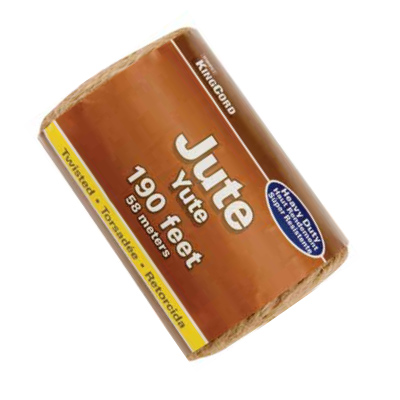
Rope Selection Guide
| Polypropylene | Nylon | Polyester | Cotton | Manila/Sisal/Jute | Clothesline | |
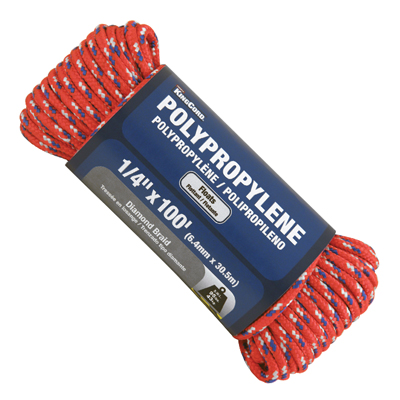 |
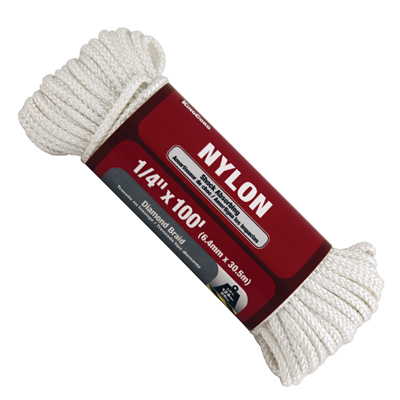 |
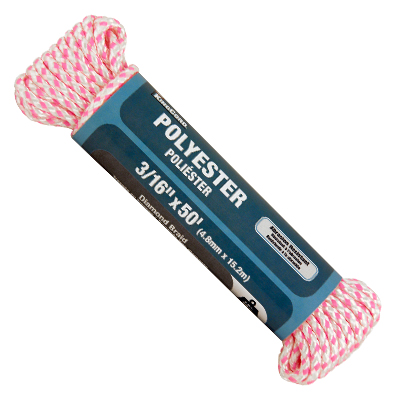 |
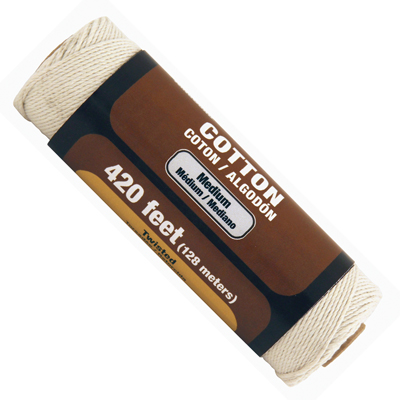 |
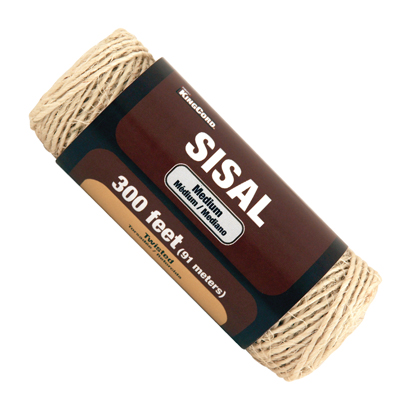 |
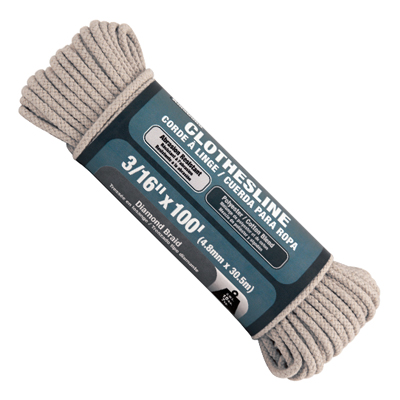 |
|
| Strength |    |
    |
   |
 |
 |
   |
| Shock Load Ability |    |
    |
  |
 |
 |
  |
| Floats or Sinks in Water | Floats | Sinks | Sinks | Sinks | Sinks | Sinks |
| Melting Point | 330°F | 480°F | 500°F | Burns | Burns | 500°F |
| Abrasion Resistance |   |
   |
    |
 |
 |
   |
| Resistance to Sunlight |   |
  |
    |
    |
    |
    |
| Resistance to Rot and Mildew |     |
    |
    |
 |
 |
    |
| Resistance to Oil and Gas |     |
    |
    |
 |
 |
    |
| Flexing Endurance |    |
    |
  |
 |
 |
  |
| Store Wet or Dry | Wet or Dry | Wet or Dry | Wet or Dry | Dry Only | Dry Only | Wet or Dry |
| Stretch Resistance |   |
 |
    |
    |
    |
    |
Reference Chart
| Trade Size | Imperial Size |
| #3 | 3/32″ |
| #4 | 1/8″ |
| #4.5 | 9/64″ |
| #5 | 5/32″ |
| #6 | 3/16″ |
| #7 | 7/32″ |
| #8 | 1/4″ |
| #10 | 5/16″ |
| #12 | 3/8″ |
Rope Construction Guide
| Double Diamond Braid | Diamond Braid | Twisted | Smooth Braid | Hollow Core | |
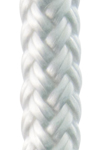 |
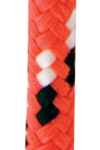 |
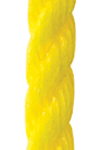 |
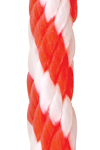 |
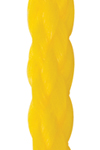 |
|
| Spliceable |  |
 |
  |
No |    |
| Flexibility |   |
  |
  |
   |
    |
| Flattens Under Load | No | Yes | No | No | Yes |
| Rotates Under Load | No | No | Yes | No | No |
| Knot-Holding Ability |     |
    |
  |
   |
   |
Comparisons
| Solid Braid | = | Smooth Braid |
| Sash Cord | = | Cotton or Polypropylene Cord |
| Derby Rope | = | Solid/Smooth Braid Polypropylene |
| Double Braid is NOT the same as Diamond Braid | ||
| Seine Twine | = | Diamond Braid Twine |
| Mason’s Line | = | Twisted Twine |
| Maypole | = | Diamond Braid |